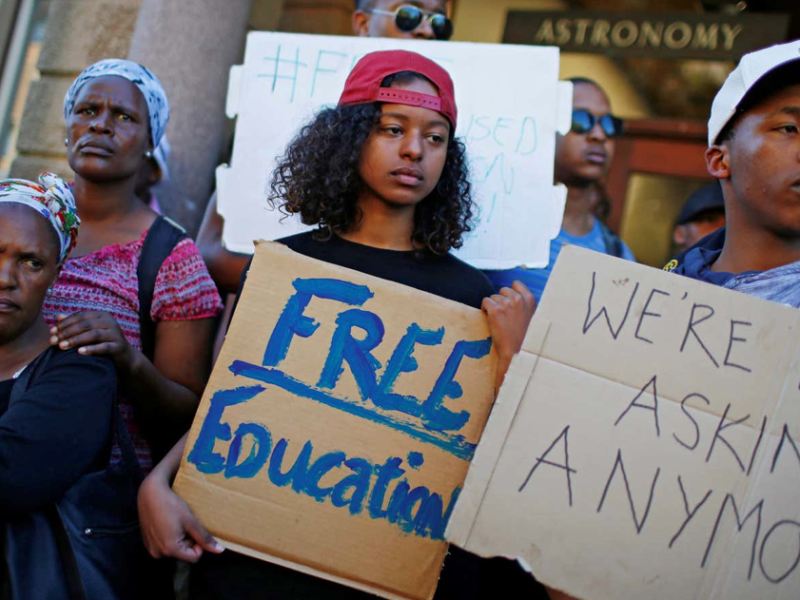Youth’s Perspective on Decolonising Education Financing

“Decolonising education financing promotes more inclusive, culturally responsive, and equitable educational practices that validate and incorporate indigenous knowledge, perspectives, and histories (Dr. Ester, GCE board Representative,2023)”. Decolonising education can be described as a fight for free and equal education for all. It prioritises decolonising education financing, a political position held byGCE as a social movement advocating for education as a human right. The question at hand is what do youth involved in this movement think of decolonising education financing, and what does this look like from the youth’s perspective?
To address the above question, the youth and students at GCE held a webinar to cultivate a conversation around this topic. One of the speakers, Dr. Maria Ron Balsera, stated that in decolonising education financing, there is a need to increase tax revenue spent on education nationally in education financing. The aforementioned needs to be done with equity criteria, whereby children who need special education will be attaining more funding for inclusive education. Tax revenue contributes 97% towards the education sector globally and the other 3% from ODA. There is a need for at least 6% of the GDP and 15% of the national spending globally to be allocated towards education.
As the youth, “we have identified the need to improve tax revenues towards education spending; to ensure that the funds are spent where they are needed most to support equitable access to education.” There is a need for greater transparency on how education budgets are allocated. In addition, non-governmental bodies in the private sector need to contribute more towards education by contributing more to tax and avoiding tax abuse. This would result in more than $400 million invested in the education sector, emphasising a need for more social accountability from private actors (TES Summit).
Habeeb Adewale from Brain Builders Youth Development Initiative stated that the key lesson civil society organisations should take is to ensure improved capacity building for youth and students. This ensures that youth have the knowledge to contribute towards decision-making processes on SDG 4. Additionally, more opportunities should be given for youth participation and inclusion in key global spaces such as UN-HLPF, UNGA, and constituency representatives in boards addressing the SDG-4 agenda. Prince Gideon from the CommonWealth Students Association stated that there need to be public hearings where youth are involved. Public hearings are events where citizens are invited to scrutinise and check any budget lines/costs of government projects, especially those in the education sector, to ensure funding is allocated to where it is needed most. The above actions, which ensure public accountability demanded by youth, ensure representation in education financing.
Youth from the Youth Action Group (YAG) have provided their different perspectives on this. We need decision-makers to engage youth student leaders and organisations as representatives in education financing. This partnership would allow for the youth that are actually at the forefront to address the needs of the youth and students at all points. Governments, foundations, NGOs, and other donors towards education must champion the presence of students’ voices in their spaces.
Abideen Olusapo from Brain Builders Youth Development Initiative shared his perspective, stating, “At Brain Builders Youth Development Initiative, we recognize the critical role of youth perspectives in the process of decolonizing education financing. We believe empowering young voices is crucial for dismantling systemic barriers and creating a more inclusive and equitable educational landscape. By actively engaging and amplifying youth perspectives, we aim to challenge traditional funding structures, advocate for fair resource allocation, and promote educational opportunities that honour diverse cultures and knowledge systems. Together with other youth, we strive to co-create a decolonized education financing model that fosters transformative learning experiences and empowers future generations to shape a more just and inclusive society.”
Youth have three requests in decolonising education financing, which are as follows: a curriculum reform for more inclusive and indigenous education curricula, funding towards indigenous language preservation through the education system, and the allocation of funds to support youth initiatives towards decolonising education. This is by offering more grants and other forms of financial support to youth organisations championing the fight for decolonised education financing. It is imperative that these demands be met to ensure the success of decolonising education and education financing.


